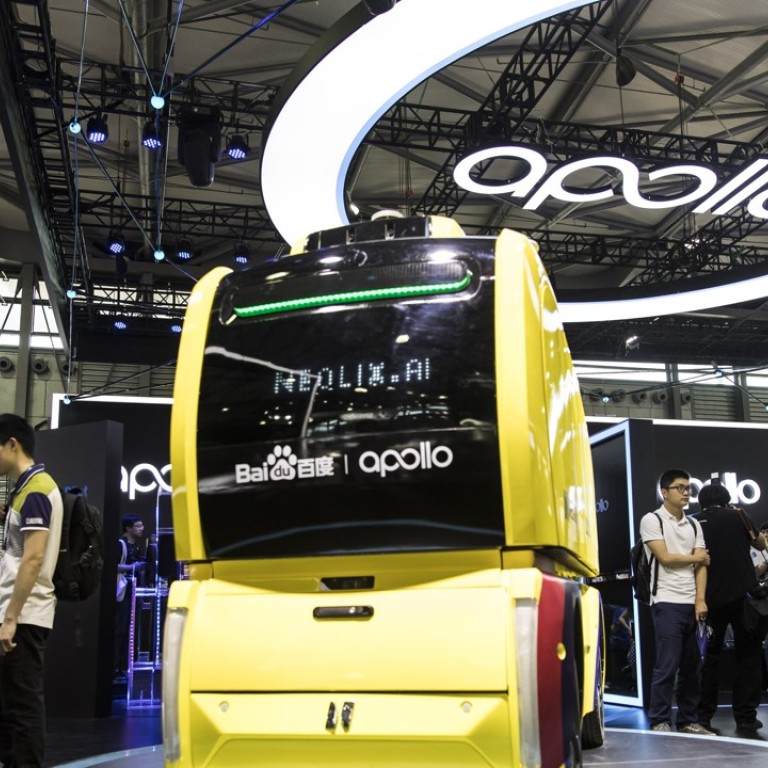
Baidu’s first 100 self-driving buses roll off production lines as CEO hails Year Zero for autonomous vehicles
Baidu is seeking to reshape itself into a major player in artificial intelligence, in line with China’s national strategy
The first 100 of Baidu’s “Level 4” self driving buses have rolled off the production lines, said Robin Li, chief executive of China’s largest search engine operator on Wednesday.
The self-driving buses, which can seat up to 14 people, were co-developed by Baidu, which is transforming itself into an artificial intelligence (AI) company, and bus maker King Long United Automotive Industry Co. Level 4 operations means that the vehicles can take over all driving in certain conditions.
With no steering wheel and high automation, the buses will be put into use in cities including Beijing, Xiongan, Shenzhen and Tokyo, Li said at the Baidu AI Developer forum being held in Beijing. “They will help with shuttle services around nuclear power stations and senior communities in Japan,” for example, said Li. Baidu will partner with SB Drive, a subsidiary of SoftBank Group, to export the self-driving buses to Japan.
Autonomous vehicles are a key part of the Nasdaq-listed Chinese company's future as it seeks to reshape itself into a major player in artificial intelligence, in line with China’s national strategy to develop excellence in the field. Baidu also launched Apollo 3.0 at the forum, an updated version of its autonomous driving system that supports valet parking, self-driving buses and trucks and unmanned carts that can cover delivery needs within a 5 kilometre range.
“Now all my brags have come true,” said Li, referring to the on-time delivery of the self-driving buses, something he promised at start of the year. “2018 marks the first year of commercialisation for autonomous vehicles,” said Li. “From here, the industry will go from zero to one, from one to 100.”
Li also announced a new AI chip, called Kunlun, which is aimed at satisfying computing demand for deep learning and natural language processing, supporting large-scale voice recognition and autonomous driving.

